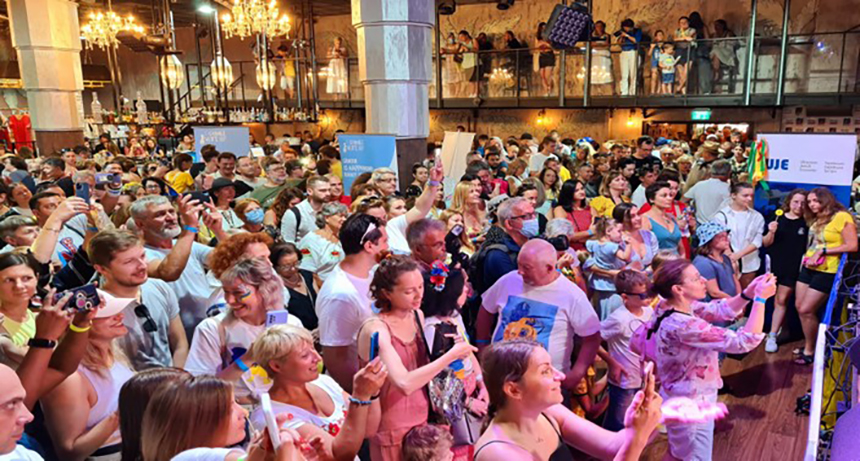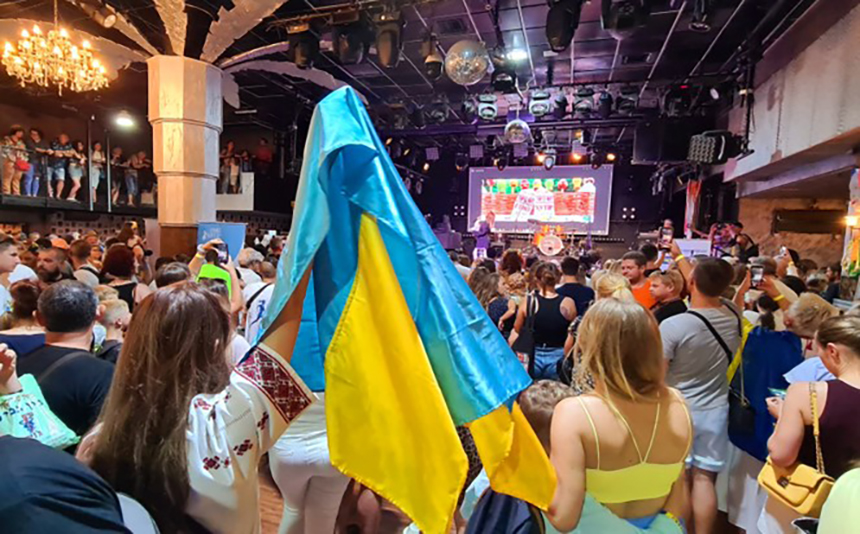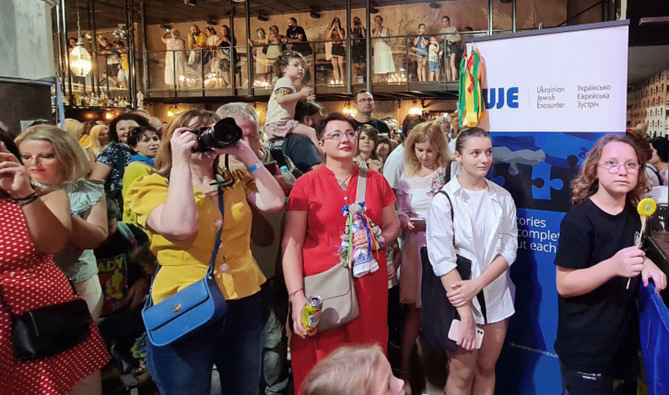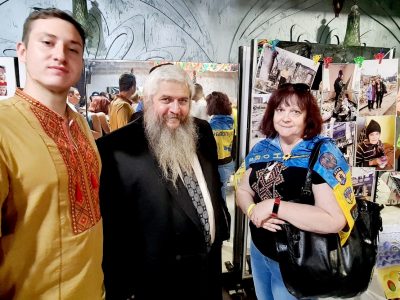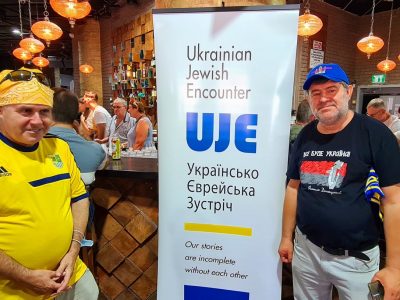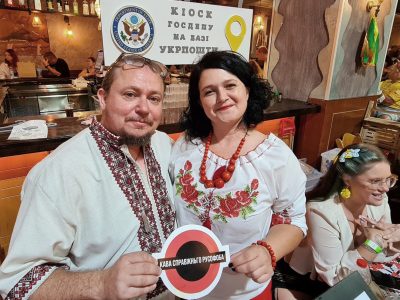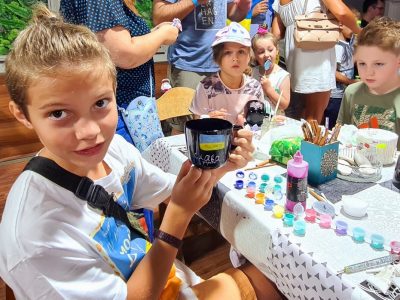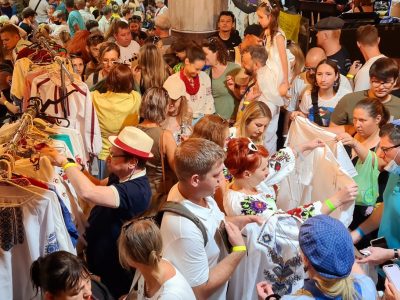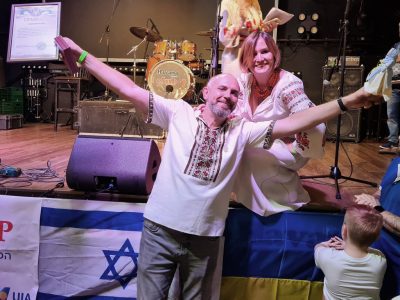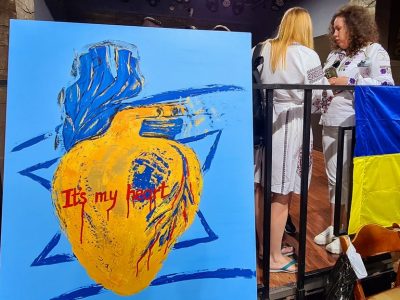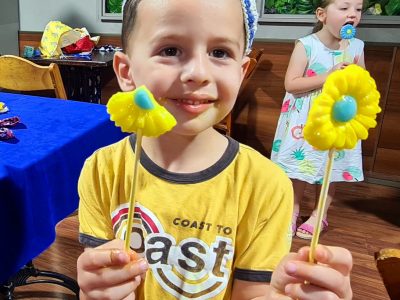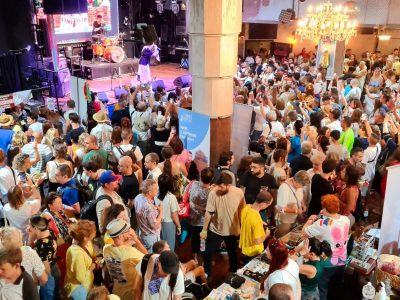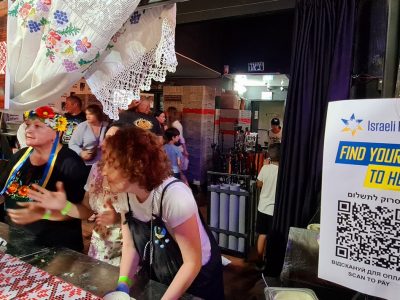Israelis' unprecedented interest in Ukraine: Ethno-Khutir 2022 in Tel Aviv
The festival of Ukrainian culture, music, and food known as Ethno-Khutir has taken place in Israel since 2015, becoming the most formidable pro-Ukrainian event in the country’s cultural landscape.
This year’s festival, however, saw an unprecedented number of attendees. COVID restrictions, which led to the festival's cancellation in 2020 and 2021, have been removed in Israel, allowing for mass gatherings. And many Israelis, upset by Russia’s unprovoked and criminal war against Ukraine, attended the festival to show their solidary with the Ukrainian people.
As a result, although I have attended all the previous festivals, I never witnessed what I saw on 22 July 2022. Stretching beneath the hot Israeli sun was an approximately three-hundred-meter-long lineup of Israelis waiting to be admitted to the Havana Music Club in Tel Aviv, where the Ethno-Khutir Festival was taking place.
Unlike in previous years, when the event organizers rented only one hall, they rented three this year, and all the halls were packed to overflowing. I estimate that more than 3,500 visitors were at the festival within a few hours.
The event was organized by the NGO Israeli Friends of Ukraine, with the support of the Canadian non-profit charitable organization Ukrainian Jewish Encounter and the Embassy of Ukraine in Israel.
"Today, we are having fun here, but let's not forget about the terrible war that is being waged against Ukraine. All the funds raised will go to purchasing medicines for the wounded in Ukraine," said Vyacheslav Feldman, co-founder of Israeli Friends of Ukraine, at the festival's opening ceremony.
His colleague, Anna Zharova, said that "Wars are won not just with weapons but with the strength of spirit and the strength of a great heart. We, therefore, thank all our guests because, with your help, we will be able to assist more people!"
The packed halls rang out with Ukrainian songs, and Ukrainian souvenirs and crafts produced by artisans were on sale.
The demand for embroidered shirts vied only with the demand for Ukrainian varenyky [dumplings]. Cold Ukrainian beer was eagerly snapped up on this hot summer day in Israel.
For children, there were master classes in pictorial art.
The Chief Rabbi of Ukraine, Moshe Azman, who made a surprise visit to the festival, instantly became the event's star. Dozens of visitors came up to him to thank him for the help that the Jewish community of Kyiv is providing to Ukrainian army hospitals. Rabbi Azman addressed the festival guests with words from the ancient Jewish wisdom of the Lubavitcher Rebbe: "A little bit of light dispels a lot of darkness."
In the halls were people I had met previously at mass rallies in support of Ukraine held in Tel Aviv, Jerusalem, Haifa, and Rishon LeTsiyon.
During the five months of the war, Israeli Friends of Ukraine has sent more than a hundred tons of humanitarian and medical aid to Ukraine, creating the Israeli logistics center MARLOG, which is based in the Volyn region and headed by Natalia Popova.
Israeli volunteers continue to engage in these efforts with absolute selflessness, using donations from thousands of Israeli citizens. The awarding of Ukraine's Order of Merit, 3rd Class, to Vyacheslav Feldman and Anna Zharova by a representative of the Ukrainian Embassy in Israel, in keeping with a decree issued by President Volodymyr Zelensky, delivered a big surprise at the festival.
In one of the halls, I saw hundreds of people wearing Ukrainian embroidered shirts who had come from dozens of cities in Israel, despite the problems caused by the cancellation of the Haifa–Tel Aviv trains because of railway repairs.
But the main thing was the drive — the sense of belonging that was felt by all the guests, the joyful feeling of being among like-minded people.
This was a grand meeting of friends of Ukraine, a true cultural bridge between Israel and Ukraine.
Ethno-Khutir 2022, Tel Aviv, 22 July 2022, Video 1
Ethno-Khutir 2022, Tel Aviv, 22 July 2022, Video 2
Text and photos: Shimon Briman (Israel).
Translated from the Ukrainian by Marta D. Olynyk







